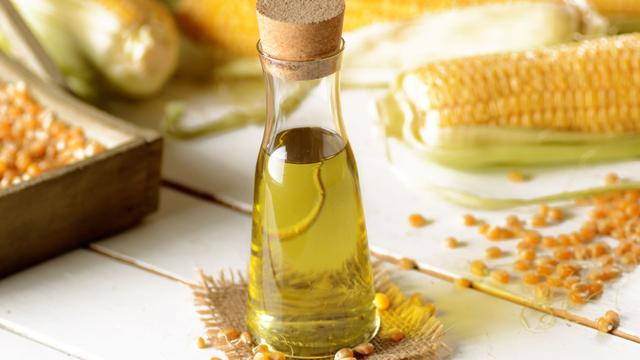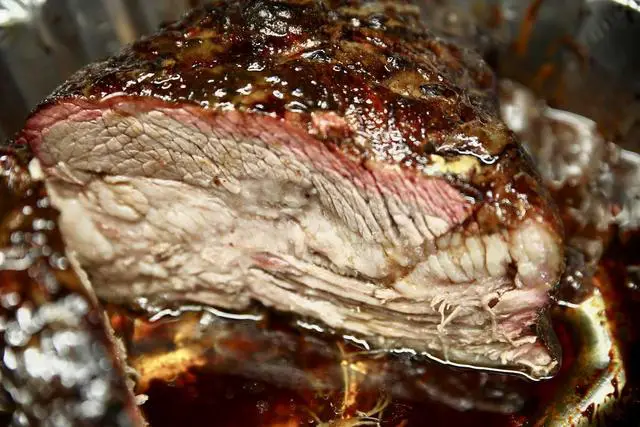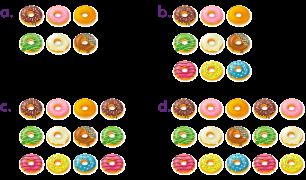
Corn Oil vs Vegetable Oil: Unveiling the Healthier Cooking Companion!
Corn Oil vs Vegetable Oil in Baking
When it comes to baking, the choice between corn oil and vegetable oil can make a difference in both flavor and texture. Corn oil, with its smoky and roasted flavor, adds a unique taste to baked goods. It is often used in recipes that call for a slightly richer flavor profile. On the other hand, vegetable oil is known for its neutral taste, making it a popular choice when you don’t want the oil to alter the flavor of your baked goods.

In terms of texture, corn oil’s high smoke point makes it ideal for baking at higher temperatures. It helps create a crispy and golden crust on cakes, muffins, and cookies. Vegetable oil, with its lighter consistency, can add moisture to baked goods without weighing them down. This makes it great for producing tender and moist results.
Corn Oil

Corn oil is a type of vegetable oil that is derived from the germ of corn. It has been used as a common cooking oil for generations and provides a smoky, roasted flavor to food. With its high smoke point, corn oil is ideal for frying and can be used as both a salad oil and frying oil due to its low cholesterol content. Additionally, corn oil is an essential ingredient in many types of margarine and is also used in the production of soaps, inks, and candles. It is readily available in grocery stores in the US and is known for its affordability.
Corn oil differs from generic vegetable oil in terms of flavor and smoke point. While vegetable oil is mostly flavorless and used as a moistening agent, corn oil adds a slight roasted, smoky taste to food. Its high smoke point makes it suitable for high-temperature cooking methods, such as frying. On the other hand, vegetable oil, which is an umbrella term for oils derived from seeds or other parts of vegetables and fruits, tends to have a lighter color and no distinct taste or odor. However, it can be challenging to determine the exact composition of vegetable oil since it can be a mixture of different oils.
Vegetable Oil
Vegetable oil is an umbrella term for any type of oil that has been derived from seeds or other parts of vegetables and fruits. It is light in color, often odorless and tasteless, making it a good ingredient for foods that need more moisture but not necessarily more flavor. Vegetable oil can be canola oil, soybean oil, or a mix of various different oils. It is commonly used as an all-purpose oil for cooking, baking, and roasting.
A bottle labeled “vegetable oil” may contain one type of oil or a mixture of different oils, which makes it difficult to determine its exact nutritional profile. However, vegetable oil is widely available and easy to find in grocery stores. It can be stored at room temperature for several months or up to a year if unopened.
The smoke point of vegetable oil varies depending on the specific type of oil used. Canola oil is commonly found in vegetable oil blends and has a lower smoke point compared to corn oil. Corn oil is dark in appearance and has a distinct roasted, smoky flavor. It has one of the highest smoke points among cooking oils, making it ideal for frying and other high-heat cooking methods.
Smoke Points
Corn oil has a smoke point of approximately 450 degrees Fahrenheit, one of the highest among cooking oils. This makes it an excellent choice for frying and other high-heat cooking methods. Its high smoke point allows corn oil to withstand the intense heat without breaking down or producing harmful substances.
On the other hand, vegetable oil, which is often a blend of different oils including canola and soybean oil, has a lower smoke point compared to corn oil. While it is still suitable for most cooking and baking purposes, it may not be ideal for high-temperature frying. Vegetable oil’s lower smoke point means that it can break down at higher temperatures, potentially releasing unpleasant flavors and harmful compounds into the food.
When selecting between corn oil and vegetable oil, consider the specific cooking method you will be using. If you plan on frying or cooking at high temperatures, corn oil’s higher smoke point makes it a better option. However, if you are looking for a more versatile all-purpose oil with a milder flavor, vegetable oil may be more suitable.
Corn Oil
Corn oil is a type of vegetable oil that has been derived from the germ of corn. It is also known as maize oil and has been the most common type of cooking oil for generations. With its smoky, roasted flavor, corn oil adds a unique taste to food, making it ideal for baking and frying. It has a very high smoke point, which makes it perfect for foods that need to be fried at high temperatures. Additionally, corn oil contains very little cholesterol, making it a healthy option for salad dressings and frying.
Aside from its culinary uses, corn oil is also an essential ingredient in many types of margarine and is commonly used in the production of soaps, inks, and candles. Its high smoke point makes it versatile both inside and outside the kitchen. Corn oil is easily accessible in grocery stores throughout the US and is relatively inexpensive compared to other oils.
Vegetable Oil
Vegetable oil is an umbrella term for any oil that has been derived from seeds or other parts of vegetables and fruits. It encompasses oils such as canola oil, soybean oil, and a mix of various different oils. While vegetable oil is usually light in color, odorless, and tasteless, it serves as a good ingredient for foods that require more moisture but not necessarily more flavor. However, one drawback of vegetable oil is that it can be a mixture of different oils, making it difficult to determine its exact nutritional profile.
Corn oil, on the other hand, is a type of vegetable oil that is derived from the germ of corn. It offers a smoky and roasted flavor to recipes, making it suitable for enhancing the taste of food. With its high smoke point of approximately 450 degrees Fahrenheit, corn oil is ideal for frying and other cooking methods that involve high amounts of heat. Additionally, corn oil contains essential fats and is easily digested, making it a good option for salad dressing as well.
Flavor and Appearance
Corn oil has a distinct roasted, smoky flavor that adds depth to recipes. Its flavor enhances the taste of food and can be used as a flavoring agent in various dishes. On the other hand, vegetable oil, being mostly flavorless, does not change the taste of food significantly. It acts as a moistening agent, providing moisture to baked goods without altering their flavor.
In terms of appearance, corn oil is usually dark in color, while vegetable oil is much lighter and almost clear with a yellowish tint. The difference in color can be attributed to the different sources from which these oils are derived.
Final Thoughts
When it comes to choosing between corn oil and vegetable oil, it ultimately depends on your cooking preferences and the specific dish you are preparing. Corn oil offers a smoky, roasted flavor that can enhance the taste of your food, making it a popular choice for frying and baking. Its high smoke point also makes it ideal for cooking at high temperatures.
On the other hand, vegetable oil is a versatile option that is light in color, odorless, and tasteless. It is often used as a moistening agent in recipes and is preferred when you want to maintain the natural flavors of your ingredients without adding any additional taste. Vegetable oil is also more commonly available and can be used for various cooking methods.
In conclusion, both corn oil and vegetable oil have their own unique characteristics and uses. Consider factors such as flavor preference, smoke point requirements, and intended use when deciding which oil to use in your recipes. Regardless of your choice, both oils can contribute to deliciously cooked meals.
In conclusion, corn oil and vegetable oil are both commonly used cooking oils with different nutritional profiles. While corn oil is higher in polyunsaturated fats and vitamin E, vegetable oil is a blend of various oils and may have a milder taste. It is important to choose the oil that aligns with your dietary needs and preferences.
Learn More About Grilling
If you want to learn more about grilling, check out these other helpful resources!











